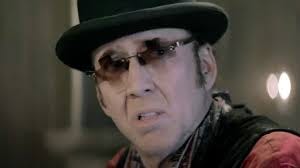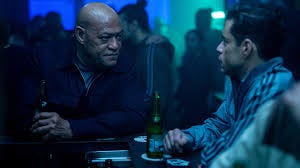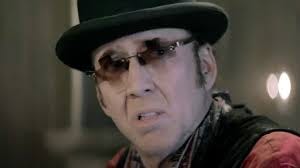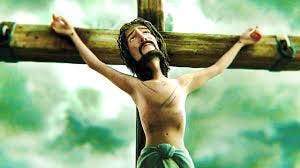Based on the novel by Robert Littell (which served as the inspiration for a 1981 adaptation of the same name that you have almost certainly forgotten existed), The Amateur stars Rami Malek as Charles Heller, a brilliant CIA analyst who, as the film opens, is horrified to learn that his beloved wife (Rachel Brosnahan) has been killed in a terrorist attack while on a business trip in London. Using his skills, he quickly figures out those responsible and when he learns that his superiors at the agency have no real interest in pursuing them because on any number of conflicts, he digs up dirt on them to use as blackmail to force them to train him in field tactics so that he can go off and dispatch them himself. Under the tutelage of a veteran agent (Laurence Fishburne), Heller doesn’t seem particularly adept at the killing arts but when he suspects that his bosses are going to renege on the deal, he takes off and makes his way through Europe, using the skills that he does possess to track down and murder his wife’s killers while at the same time evading fellow government agents charged with bringing him down at any cost.
The original version of this story was obviously a product of its Cold War era—it was set almost entirely behind the Iron Curtain and was noticeably cynical in its depiction of a U.S. espionage program willing to sacrifice anything in order to further its illicit goals—and while this version, directed by James Hawes, has updated things in that regard (with the terrorists here having no real ideology outside of money, all the better to avoid potentially offending anyone in particular), it hasn’t figured out a way to make the story work in a particularly compelling manner. What should be a brutal and relentless tale in which a guy who has spent his career in espionage—albeit at a distance from the action—tries to take action for himself and learns that vengeance is not nearly as easy as it seems in the movies has been turned into just another mediocre programmer more intent on providing empty thrills and action (without being brutal enough to lose the PG-13 rating) than in offering any story points that might serve to trouble or upset viewers. (Yes, this is another movie in which all the wrongdoing on the U.S. end is attributable to a couple of bad apples and not the institutions deploying them.) Malek is not particularly convincing in the central role while the supporting turns from the likes of Fishburne, Julianne Nicholson and Jon Bernthal are so haphazardly constructed that every time one of them wandered into the frame, it took me by surprise because I had forgotten that they were even in it. The whole thing has the plodding and listless feel of a busted pilot for a TV show that you will never quite get around to watching and never quite feel as if you are missing out on anything by not doing so.
.As anyone who has even the vaguest interest in contemporary cinema has no doubt noticed over the years, Nicolas Cage has a tendency to sometimes deliver performances that are, to put it mildly, eccentric. Whether this impulse is due to a genuine effort to find a way to bring his characters to life or if it is just a method for him to amuse himself when dealing with what is usually cut-rate material, I cannot say for sure. However, having seen many of these twisted past turns, I can assure you that his supporting performance in the cheesy B-minus Western Gunslingers is one of the strangest. Dressed in a manner that suggests the Southern Accents-era Tom Petty (complete with glasses featuring cross-shaped lenses) and speaking in a barely decipherable rasp that sounds like Tom Waits gargling Bane, his performance as a one-time master gunfighter whose religious conversion now keeps him from strapping on his six-guns is so strange and unlikely that even connoisseurs of Cage-style camp may find themselves shaking their heads at the weirdness of it all, even as they eat up every twitchy move and peculiar line reading on display.
Alas, not even Cage’s eccentric efforts are enough to make much of anything out of this painfully derivative and sloppily executed genre exercise from insanely prolific writer-director Brian Skiba. The storyline—having killed a Rockefeller in New York, outlaw Thomas Keller (Stephen Dorff) sets up a new life in Redemption, a town populated entirely by former criminals who have renounced their wicked ways, but his past catches up with him in the form of Robert (Jeremy Kent Jackson), the vengeance-minded brother he left for dead who is determined to bring him back to New York for justice and will kill anyone who gets in his way—is a tedious siege saga filled with hokey dialogue, paper-thin characters and poorly-staged action beats augmented with clumsy-looking CGI gore effects that combine to make it feel as if it is about six times longer than it actually is. The cast, which also includes such not-quite mid-level performers as Costas Mandylor (who is one of the better performers here), Randall Batinkoff, William McNamara and Eric Mabius go through their paces with the conviction of actors at a theme park show doing their seventh performance of the day, though the worst performances by far come from the usually reliable Heather Graham, who plays Thomas’s ex as if she has just come in from a catalogue shoot, and Scarlet Rose Stallone (yes, the niece of Frank), whose turn here is so hilariously wooden that it feels at times as if you are watching Heidi Gardner doing one of her SNL characters. Even by the not-exactly-august standards of low-budget hack work destined to head straight for the VOD void, Gunslingers is as tedious of a film as you will ever see and while Cage does enliven things a bit here and there, you are hereby advised to hold off until the inevitable YouTube compilations of his work here are uploaded so that you might save your time, money and quite possibly your sanity
The King of Kings is without a doubt one of the most conceptually baffling films that I have ever seen before in my life, one so utterly bewildering in virtually all aspects of its existence that I feel the need to state upfront that I am not exaggerating or making up any of the elements that I am about to mention. As you can probably surmise from the title, the film is a retelling of the story of Jesus Christ from his birth in the manger to his death upon the cross and, perhaps due to a combination of trying to make it attractive to children and families while at the same time keeping down the costs that might otherwise make it prohibitively expensive to produce, it has been presented here as a CGI animated feature. To perform the roles, the production has managed to rope in a reasonably impressive cast that includes Oscar Issac as Jesus, Pierce Brosnan as Pontius Pilate, Mark Hamill as King Herod, Ben Kingsley as Caiaphas and Kenneth Branagh as author Charles Dickens and Uma Thurman as his wife, Catherine. If two of those names don’t seem quite like the others, that is what leads us to the element that moves it into the realm of “WTF?” Perhaps worrying that the story of Jesus just might not be a draw for viewers today, the film adds an extra layer by having the entire story being related by Dickens to his rambunctious King Arthur-obsessed son (Roman Griffin Davis) one night after the kid disrupts a reading of A Christmas Carol with his regally-inspired nonsense—not only that, the film even places the kid and his sassy pet cat into the Biblical scenes, leading to such touching moments as the kid tearfully crying out for Jesus on Good Friday when everyone else in the crowd is voting Team Barabbas.
The results, to put it mildly, are a mess and even if you somehow factor out the truly inexplicable conceit of having Charles Dickens and his kid serve as our tour guides, it still never gels into something that is either entertaining or informative. Although the notion of doing an animated version of the life of Jesus is not necessarily a terrible idea, at least in theory, that idea has been executed so badly that you have to wonder what anyone involved with the production must have been thinking while they were making it. The film tries to encompass the entirety of Christ’s life and teachings but since it only clocks in at 104 minutes—with a chunk of that dedicated to all the nonsense about Charles Dickens and his bratty kid and obnoxious cat—it can’t do much more than offer up a rushed run through his greatest hits. From a visual standpoint, it is standard-issue CGI sludge that might have seemed impressive 30 years ago but which comes across today as merely blah—although there are some background shots that are striking, the character designs are all remarkably ugly. Although a number of top actors were somehow lured into lending their vocal talents (ah, to have been a fly on the wall during the conversations when their agents recommended that they sign on), they evidently weren’t coaxed into delivering their lines with any sort of conviction.
Oh yeah, just when you think that The King of Kings can’t get any stranger or tackier, then comes the end credits in which we get to see a bunch of little kids—presumably the progeny of employees at distributor Angel Studios (yes, the same outfit behind the deeply dubious Sound of Freedom)—telling us what they liked best about the film before imploring remaining audiences members to utilize the QR code on the screen (assuring us that it is okay to use phones in the theatre now) to send money, ostensibly to pay for other families to go see it as well. In other words, the moment that the end credits begin to run, you can take off with the knowledge that you aren’t missing anything important, though the wiser viewers should probably make their exits as soon as the opening credits appear.






